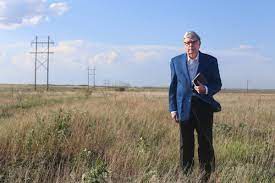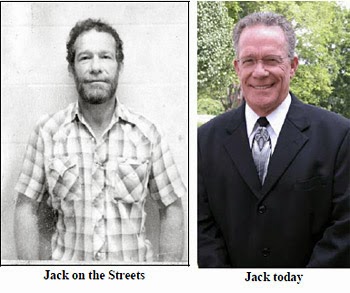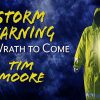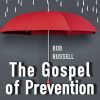“‘Do you understand what you are reading?” And he said, ‘Well, how could I, unless someone guides me?'” (Acts 8:30-31).
One consistent criticism of Bible prophecy—or at least advocates of the importance of God’s prophetic Word—is that it has little relevance to individual believers, or the core work of the Church. Many pastors express reluctance to preach on prophecy because they have so many other concerns clamoring for their attention, from marriage and family issues to Satan and sin nipping at the heels of their flock.
Others are openly hostile toward Bible prophecy. Rick Warren, a prominent pastor who leads a huge church and is a best-selling author, characterizes prophecy as a “distraction” and says that anyone who lets himself get involved in distractions like studying prophecy “is not fit for the kingdom of God.” Another well-known advocate of re-envisioned Christianity, Tony Campolo, said, “Rigid Christians who believe in the possibility of Jesus’ soon return are a real problem for the entire world.” Clearly, these men express a hostility toward Bible prophecy that is disturbing.
Jesus’ own disciples expressed certain expectations based on their understanding of Old Testament prophecies. During one visit to Jerusalem, following Jesus’ prophecy concerning the destruction of the impressive Temple built by Herod, they came to the Lord privately and asked, “Tell us, when will these things happen, and what will be the sign of Your coming, and of the end of the age?” (Matthew 24:3). Jesus did not dismiss their expectations or scoff at their understanding. And He certainly did not rebuke their interest in what had been prophesied. Instead, He expounded on the signs of His coming and of the end of the age.
Why Study Prophecy?
The primacy of prophecy was introduced in the opening chapters of Genesis by God Himself and is woven through the entire book until the last chapter of Revelation. Uttered by God—either directly or through His prophets—it profits those who take it seriously.
Following His resurrection, Jesus asked Peter three times, “Do you love Me?” (John 21:15-17). But, in John 12:44, the rhetorical question behind His interaction with the crowd was, “Do you trust Me?,” even as He said, “He who believes in Me, does not believe in Me but in Him who sent Me.” And, since the spirit of prophecy is the testimony of Jesus, studying God’s prophetic Word helps us identify, understand, and share the Son.
In a very real sense, the greatest value of understanding Bible prophecy lies not in delving into secret knowledge accessible only to super saints of the Most High. It provides the motivation and insight to share the Gospel with the God-breathed Word and in the power of the Holy Spirit.
That brings us to the passage cited at the opening to this article and explains Philip’s mission on the road from Jerusalem to Gaza. Told by an angel to “Rise up and go south,” he got up and went (Acts 8:26-27). When he got there, he encountered an Ethiopian eunuch who was returning home after worshipping in Jerusalem. This man was obviously observant and traveled a long distance to come to the Temple. As devout as he was, the eunuch was unable to understand the prophetic writings of Isaiah: “He was led as a sheep to slaughter; and as a lamb before its shearer is silent, so He does not open His mouth. In humiliation His judgment was taken away; who will relate His generation? For His life is removed from the earth” (Acts 8:32-33, citing Isaiah 53:7-8).
Inspired by the Holy Spirit, Philip “opened his mouth and from this Scripture he proclaimed the good news about Jesus to him” (Acts 8:35). The Ethiopian’s eyes were also opened and he immediately expressed a desire to profess faith in Christ. Philip’s obedience and willingness to explain the truth of Messianic prophecy caused that new convert to go on his way rejoicing.
Another famous example of evangelism through prophecy is found in Peter’s first sermon at Pentecost. Found in Acts 2:14-36, it is a recitation of one prophecy after another fulfilled in the life and person of Jesus. Joel said, “I will pour forth of My Spirit on all mankind, and your sons and your daughters shall prophesy…” “We are not drunk on wine but filled with the Holy Spirit of God.”
Speaking of the Messiah, David foretold: “You will not abandon My soul to Hades, nor allow Your holy One to undergo decay…” “Jesus the Nazarene, attested to you by God with miracles and signs… was delivered over by the predetermined plan and foreknowledge of God to be nailed to a cross and put to death at the hands of godless men… but God raised Him up again, because it was impossible for death to hold Him.”
David was also promised that one of his descendants would sit on his throne, though David remains dead and buried while Jesus lives again. That is why David also foresaw His exalted Son ascending into heaven, and he foreheard, “The LORD said to my Lord, sit at My right hand, until I make Your enemies a footstool for your feet…” “This is a promise that abides on Jesus, the Lord and Christ whom you have crucified.”
Hearing this clear reading of Bible prophecy and understanding its fulfillment in the person of Jesus, 3,000 of the people gathered in Jerusalem “were pierced to the heart” and cried out for salvation.
Testimonies Abound
I could cite many examples of men and women pierced to the heart by Bible prophecy. Face to face with the truth that Jesus is the prophesied Christ, the Son of the living God; aware that He shed His own innocent blood according to God’s foretold plan of salvation; convinced that He died but did not undergo decay as He arose again and ascended to the right hand of the Father in Heaven; convicted of their own sin and the deserved penalty for their sin against God as forthtold in His Word; and believing His promise to prepare a place for those who trust in Him and rescue us from the wrath to come… men, women, boys, and girls have called upon the Name of Jesus and so have been saved.
Our friend and fellow evangelist Jimmy Phillips has been preaching Bible prophecy for 76 years. Asked why he emphasizes God’s prophetic Word, Jimmy answered, “I preach it first of all because the Bible teaches it. The Bible is without mistakes. And the holy men of God spoke as they were moved by the Spirit.” Regarding the urgency of that message, Dr. Phillips said, “the convergence of the signs that we have today point to the Rapture of the Church.”

John Neese, the founder of SAC Orphans, has found that Bible prophecy connects him with children in Russia. They resonate with the hope and promise conveyed in prophecies pointing to our coming Lord.

George Collich, who was on staff at Lamb & Lion Ministries for many years, was drawn to the Lord as he listened to Dr. David Reagan teaching from Revelation.
Jack Hollingsworth, whose life was devastated by alcohol, became saved and then dedicated his life to becoming a singing evangelist eager to proclaim the prophetic truth that had set him free.

There’s Still Power in the Word
John the Baptist asked the Pharisees and Sadducees, “Who warned you to flee from the wrath to come?” (Matthew 3:7). Paul affirmed that among the blessings God gives to those who receive salvation is “to wait for His Son from heaven, whom He raised from the dead, that is Jesus, who rescues us from the wrath to come” (1 Thessalonians 1:10). Without the prophetic Word, we would have no warning of the wrath and no anticipation of the rescue. Praise God that knowing both we are motivated to urgent evangelism.
Jesus told His disciples, “The words that I have spoken to you are spirit and are life” (John 6:63). Some Christians think the red-letter words of their printed Bible have special significance, having been colored by the editors to highlight the spoken words of Christ. That same pattern continues into Revelation in Bibles touted as “Red-Letter Editions.”
But what about the words recorded in Revelation 21:5-8? He who sits on the throne said, “Behold, I am making all things new.” And He said, “Write, for these things are faithful and true.” Then He said to me, “It is done. I am the Alpha and Omega, the beginning and end. I will give to the one who thirsts from the spring of the water of life without cost.”
Those words are not colored red by the editors of my Bible, yet they are clearly spoken by God. The same is true in Genesis 1:3, when our Creator God said, “Let there be light.”
The point is that whether words are in red or not, or in quotations or not, or even preceded by the phrase, “Thus saith the Lord…”, “all of Scripture is God-breathed and profitable for teaching, for reproof, for correction, for training in righteousness” (2 Timothy 3:16).
In short, all of God’s Word is Gospel-centered and evangelistic. And that most certainly includes His prophetic Word.







